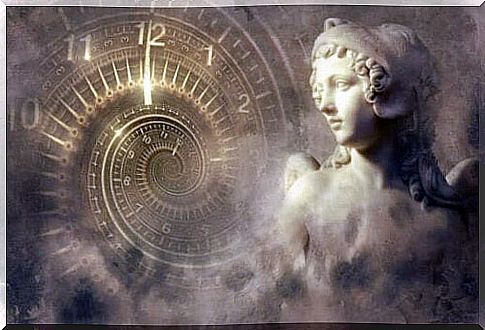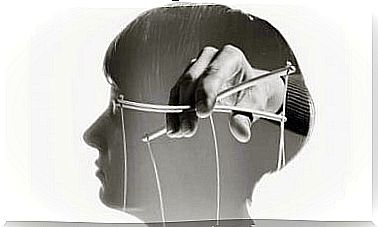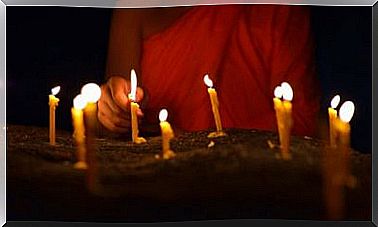Apory And The Wisdom Of Contradiction

The term aporia comes from Greek. We can define it as a state of uncertainty or confusion when we expose ourselves to two opposing but acceptable arguments.
For example, it is William Shakespeare’s classic “to be or not to be” or the classic question “which came first, the chicken or the egg?” These unsolvable questions point to philosophical dilemmas that don’t help you.
However, in the past, and in the days of Plato and Socrates, this type of reasoning was an excellent way to start debates and deep dialectical exercises.
The key was to sow doubt or ask a rhetorical question. In this way they would bring about a transition between the ambiguity of the world, the contradictions in life and the complicated reasoning that does and does not have meaning at the same time.
Furthermore, if there’s one thing we have to assume, it’s that the reality that surrounds us is full of intolerable aporia. Here’s an example.
We are undoubtedly an incredibly individualistic globalized society. All people are free. At the same time, however, they are victims of a thousand conditions, of infinite mechanisms that shape and standardize them.
Apore is the wisdom of contradiction; it invites us to have valuable reflections that ultimately lead nowhere.
What is an apore and what is its purpose?
When referring to aporias, it is inevitable not to quote the Greek philosopher Zeno’s apparent reasons. One of these quotes was known as ‘the paradox of Achilles and the tortoise’ .
The essence of this thought was based on an argument: such a movement does not really exist. The Stoic sage conceived of mobility as a sequence of resting states (as a sum of still images).
Therefore, for him, a tortoise could be just as fast or even faster than Achilles, the one with the light feet, because movement, like time, is but an illusion. According to this premise, he explained that when someone shoots an arrow, in reality it does not move at any point.
Instead, its motion is the result of the infinite sum of its resting points. What can be said about this kind of reasoning? Well, if you base yourself on classical mechanics and Newton’s laws, you could disprove it completely.
However, if you integrate it into Zeno’s own perspective of the sequence of rest states, you could certainly come to understand it. If you understand these examples, you can see that we are all familiar with the genius of an aporia.
Think about it. This term refers to that uncertainty that you sometimes experience when you are exposed to two conflicting thoughts, which are both interesting and sometimes even good. It’s a knot of confusion that, while not immediately decisive, invites you to think.

Deconstructing to Discover: The Value of Everyday Contradiction
Aporetic is an interesting adjective that you should keep in mind more often. It would be good to acquire this quality, this exercise of reasoning and reflection that allows you to deconstruct many realities to discover that there are more options and perspectives.
In an aporia, deconstruction means two things. First, allow yourself to discover the contradiction behind everything around you. Second, accept that there are everyday thoughts that are essentially opposite, yet can be accepted.
In addition, it is possible to learn from any approach, even if it is incompatible. Whatever happens, the main purpose here is nothing but to create confusion to reflect and accept the opposite as another part of life.
Types of aporia
Today, people like to use the term aporia as a synonym for difficulty. In that case it is a dead end, a challenge without a clear rational solution. For Greek philosophy, however, it was more like a riddle, like an exercise that encouraged dialogue, the exchange of ideas, theories and approaches to knowledge.
You shouldn’t think of an apore as some kind of mindless Gordian knot. Rather, this state of uncertainty encourages analysis and reasoning. Therefore, it is important to understand the two existing typologies.
Argumental aporia: part of doubt
With this kind of aporia, the starting point is always a question thrown into the group, a question that often serves as something for others to think about, even when they know there isn’t a clear answer. The aim is nothing more than to favor ideas and arguments.
Interestingly enough, most aporia are always based on questions. “Which came first, the chicken or the egg?” “Can we always believe what our eyes see or do we see through our personal interpretations and judgments?” “Is the color ‘orange’ named after the fruit or is it the other way around?”
Tonal aporia: part of an opinion
In this second typology we are confronted with a somewhat aggressive aporia, or at least imposed. In this case, one does not seek dialogue, but imposes the truth.
It’s like limiting ourselves to just pointing out that “the chicken came before the egg.” The thought continues to create a contradiction, but the expression has a determined tone and tries to convince the other person of a biased thought.
In all cases, the most appropriate aporia is the argumentative aporia that begins with a question. That is the only way to encourage dialogue and reflection.
Finally, there is an undeniable fact that goes beyond the classical metaphors that Plato and Aristotle used with their students through rhetorical questions. In today’s world , people like to spread multiple aporia. Politics, society and the advertising world, among others, continue to confuse the public with their many paradoxes.
Obviously you can’t really fix anything from this standpoint. The contradictions are sometimes continuous: you can eventually understand all points of view and still remain confused. Realizing and accepting and reflecting on those opposing universes can enrich what you already know as the wisdom of contradiction.









